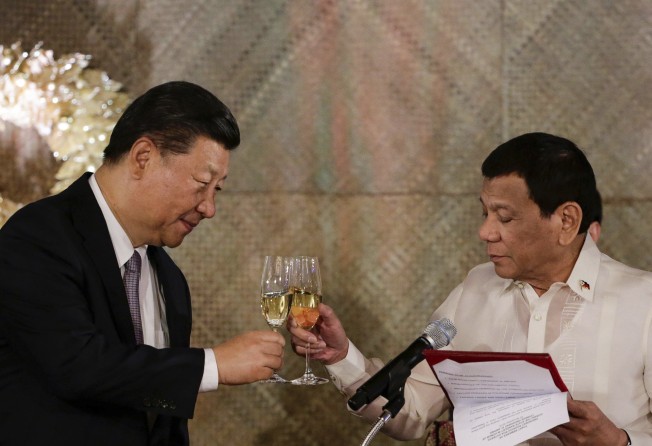Disputes put aside as China signs deals with its neighbours
- President Xi Jinping and the leaders of the Philippines and Brunei show that territorial disputes in the South China Sea need not get in the way of mutually beneficial deals
- This two-track approach is a good prescription to ensure the peace and stability

Territorial disputes need not get in the way of friendly relations between China and its neighbours. President Xi Jinping has shown that in recent visits to the Philippines and Brunei, joining fellow leaders in pragmatically putting to one side sovereignty claims in the South China Sea to sign deals of mutual benefit. Contentious issues take time to resolve and should not get in the way of cooperation and development. The two-track approach that has been adopted is a good prescription to ensure the peace and stability that is necessary for regional growth and prosperity.
Xi spoke at the Asia-Pacific Economic Cooperation leaders’ meeting in Port Moresby earlier this month of China’s desire to jointly develop the region and he took that message to Brunei and the Philippines. A highlight of the 29 deals signed in the Philippines was an agreement for shared oil and gas exploration in contested waters, a landmark arrangement given how contentious relations have been in the past. There were also pacts on boosting ties and building infrastructure and the signing of a memorandum of understanding to cooperate on China’s “Belt and Road Initiative”. Similarly fruitful deals were struck in Brunei; while bilateral negotiations take place to settle a maritime dispute, efforts to search for energy reserves will be stepped up and development visions linked.
Key to regional stability is the code of conduct for the South China Sea that China and the 10-member Association of Southeast Asian Nations hope to finalise within three years. Apart from Brunei and the Philippines, members Malaysia and Vietnam also have conflicting maritime claims and the pacts signed during Xi’s visits offer lessons. But for all the progress made, realism is also necessary. Agreements made by one government may be considered unfair by another, as Beijing has found after elections this year in Malaysia, the Maldives and Pakistan.
Philippine President Rodrigo Duterte knows the benefits of working with China and reversed the damaging policies of his predecessor when he took office two years ago. He had good reason as his country desperately needs investment and infrastructure and China is best-placed to deliver. Nothing is to be gained from animosity, while friendly relations can bring benefits – which is why Xi, the first Chinese leader to visit the Philippines in 13 years, described his trip as a “milestone” in the nations’ ties.
There can be disagreements in all friendships, but pragmatism will help calm stormy seas. Xi and Duterte have adopted that approach, as did Brunei’s Sultan Hassanal Bolkiah. Other Asian nations and governments elsewhere with doubts about Beijing’s intentions need only look to the manner in which deals were made for assurance.